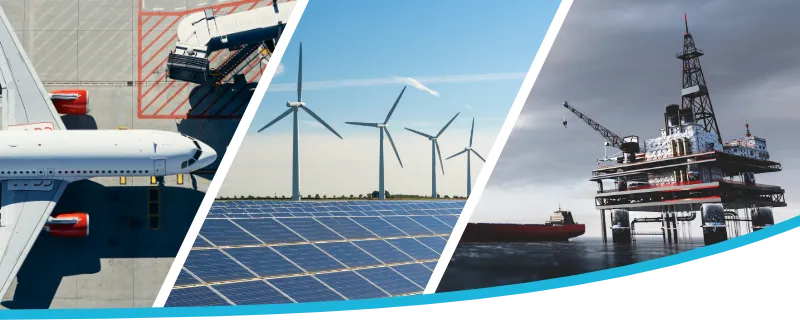Technical Infrastructures

Energy & Telecommunication
Mobility & Industry 4.0
Public & Defense
The public sector and defense industries are vital for ensuring the security, stability, and well-being of nations. The public sector encompasses a wide range of essential services, including infrastructure development, healthcare, education, and public safety. Governments and public organizations are responsible for building and maintaining the critical infrastructure that underpins modern societies, from transportation systems to water and energy supplies. The defense industry, on the other hand, focuses on safeguarding national security through the development, deployment, and maintenance of advanced military technologies, equipment, and strategic systems. This industry plays a key role in protecting nations from external threats and ensuring peace and stability.
Both the public sector and defense industries are becoming increasingly reliant on advanced technologies to meet growing demands and challenges. Smart infrastructure, cybersecurity, and data-driven decision-making are crucial for improving public services and ensuring the efficient use of resources. In defense, cutting-edge technologies such as artificial intelligence (AI), autonomous systems, and advanced communication networks are transforming military capabilities, enhancing operational readiness, and ensuring rapid response to emerging threats.
We support the public and defense sectors by delivering AI-powered solutions designed to optimize critical infrastructure, improve operational efficiency, and enhance security. Our technologies, such as digital twins and intelligent IoT systems, enable public organizations to better manage infrastructure and resources, improve public safety systems, and streamline operations. In the defense industry, our solutions help improve situational awareness, enhance logistics and fleet management, and support advanced systems integration. By providing tailored, data-driven technologies, KAMAnjola empowers these industries to meet the complex challenges of the modern world and ensure long-term security and resilience.